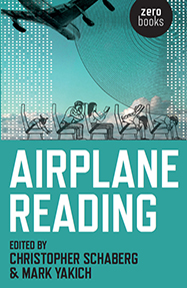We stored small roller bags in the bins above row twenty-three, then settled into our seats and exchanged names, places of origin, and reasons for travel. Similar introductions took place throughout the back cabin of the San Diego bound flight. This was the first week of air travel post-9/11 and passengers sought to connect, rather than avoid.
Once a comfortable cruising altitude was attained, remarkably perky flight attendants offered complementary alcoholic beverages with generous portions of peanuts. Somewhere over the Rockies, in that intimate space between take-off and landing, in a space intensified be recent events—Donna asked if I had children.
"Yes. Just one." I said apologetically, somehow falling short of my self-imposed quota. "And you?"
"Two, now. I had three, but my daughter died four months ago."
"Oh. I am so sorry."
"Yeah. Me too."
The chatty pilot interrupted the airspace with NFL updates and trivia about the ridges and grooves in full view of those with window seats. Our conversation paused, we genially clicked plastic glasses of chardonnay. Donna and I consolidated our stash of peanuts onto a single tray-top, then angled ourselves toward each other to the extent that secured laptops allowed.
"What was her name?"
"Annie. Well, LeAnne, but we called her Annie."
"What happened to Annie?"
In life Annie was legally blind, cognitively delayed, unable to walk or talk. She died of flu complications at age five. Although considered medically fragile, her family was blind-sided by her death.
"Do you know what has been one of the hardest things?" Donna asked.
I shook my head. I had worked with families affected by disabilities much of my adult life but I had never experienced the loss of a child.
"People keep telling me, it's for the best. They hug me and hold my hand and whisper this in my ear: It's for the best! I want scream. Best for whom? Not for me, or her dad! Or her brothers! Or for Annie! She wasn't in pain. She was so happy and so loved. She had a great life. She really did."
I nodded because I believed this to be true.
"She was the center of our familiy. Annie brought us together."
As I Iistened, my mind's eye saw a diminutive version of Donna, an ash-blonde beauty with a strong chin and gray, unseeing eyes. Annie laughed as she twirled and dipped in the arms of a tall, smooth-moving, suit-clad bald man singing with Earth, Wind and Fire's "Let's Groove Tonight." I smiled as Donna and two towheaded boys orbited Dad and daughter, alternating swooping arm movements with karate kicks and lopsided cartwheels.
"Are you finding ways to move forward?"
Donna gave a full gut-level laugh, "Yes! Well, sort of. This sounds odd. I don't tell my church group this but, well, tennis!"
"As a family?"
"Yes! Two days a week we take a family tennis lesson. We're all new to it and we're together."
I nod, marveling at the importance and power of small steps.
Kathryn Kohnert lives in Minneapolis, MN. She is a professor emeritus of communication sciences and disorders. Her research on bilingualism, language development and language disabilities has been published in dozens of academic journals and textbooks.






